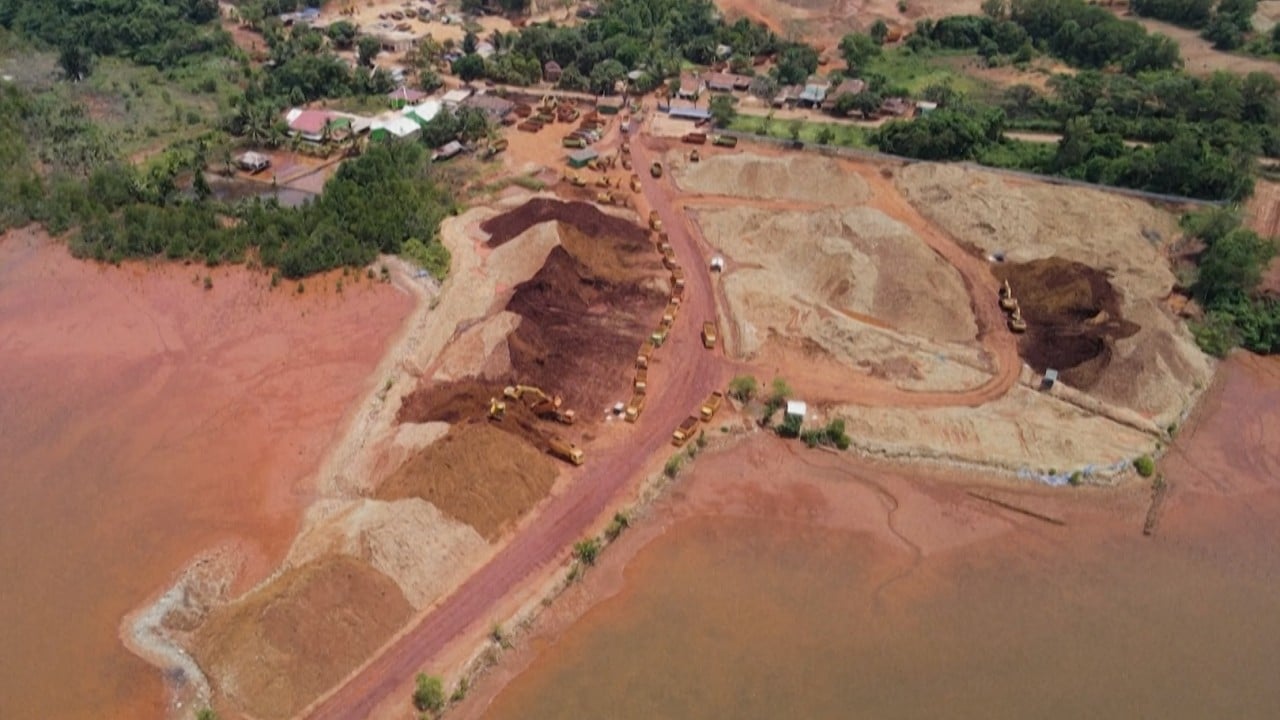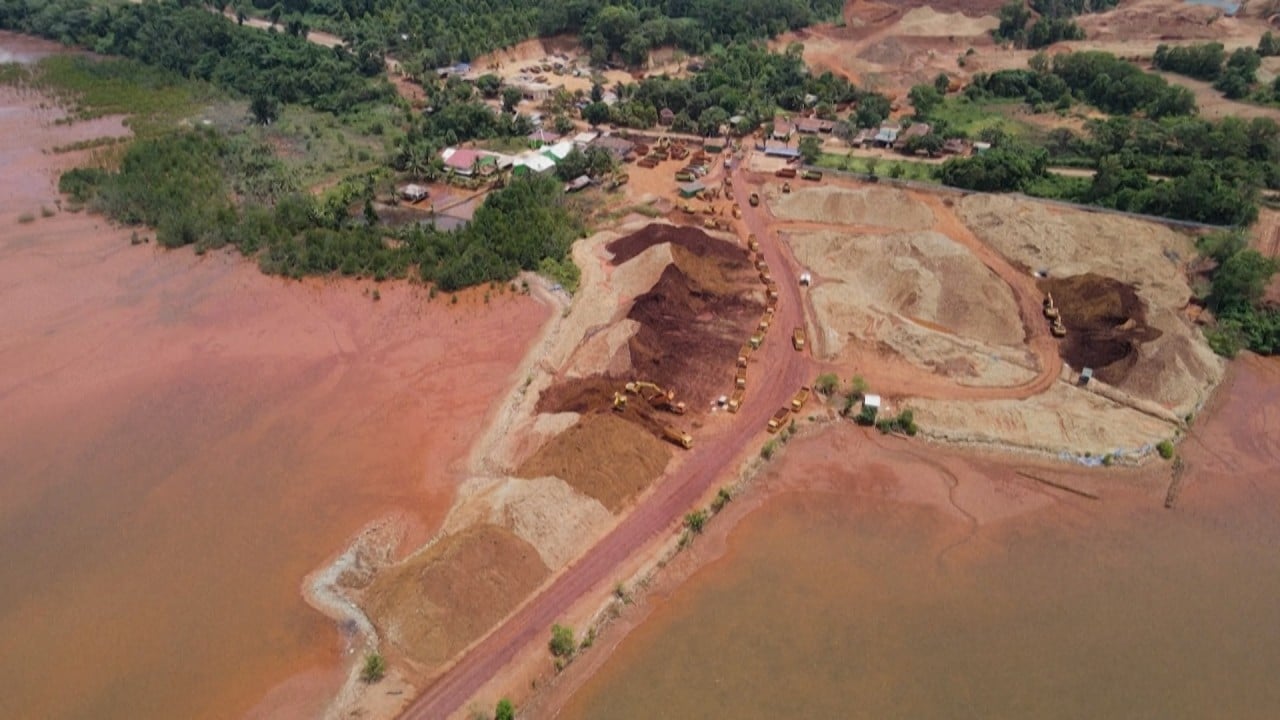Indonesia is sending mixed signals about Chinese investment in its nickel industry as it aims to align its policies with US tax credit eligibility under a trade deal with Washington, with the government denying placing limits on Chinese involvement even as reports suggest new deals are being structured to minimise their ownership.
Experts say Indonesia’s approach reflects a desire to balance national interests against geopolitical tensions as Jakarta attempts to diversify its investment partners and export markets to reduce its dependency on China.
Septian Hario Seto, deputy coordinating minister for investment and mining, told This Week in Asia on Wednesday that “there are no [efforts] by the government to limit [Chinese investments]” in the industry.
His statement came in response to questions raised by a July 26 report in the Financial Times, citing three unnamed sources, saying the Indonesian government and nickel industry players are trying “to structure new nickel investment deals with Chinese companies as minority shareholders”.
The report said the reason behind this is Washington’s classification of China as a “foreign entity of concern” under its Inflation Reduction Act (IRA), signed by President Joe Biden in 2022, which dictates that electric vehicles containing China-sourced batteries and metal components would not be eligible for US$7,500 tax rebates.
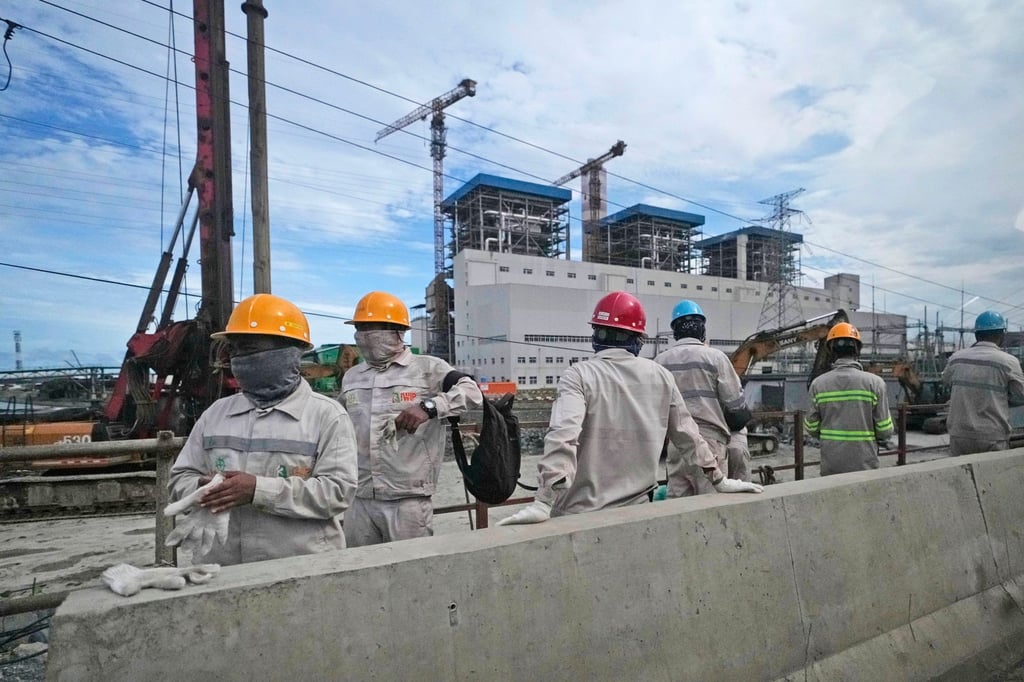
EV batteries containing Indonesia-sourced components would thus not qualify for the tax credits as China heavily dominates the country’s nickel extraction and processing industry, particularly after Jakarta banned the exports of raw nickel ore in 2020 as part of a value-added strategy to generate more revenue by requiring miners and producers to build refining facilities onshore.
The Financial Times report said Septian confirmed the industry and government efforts to limit future Chinese investment.
“It’s not just about IRA, but also diversification,” he told the newspaper. “This is a very important policy because we do not want to get trapped in geopolitical tensions. We have to look out for national interests.”
However, the report also noted that the government is not imposing mandatory limits on ownership by Chinese companies.
“All dealings are done business-to-business,” Septian told This Week in Asia, giving the example of a deal already made by businesses in which a Chinese company would be the minority shareholder, while their Indonesian and South Korean partners would be the major shareholders, in a project valued at about US$700 million. He declined to elaborate further on the specifics of the deal.
Navigating trade tensions
Kyunghoon Kim, an associate research fellow at the Korea Institute for International Economic Policy focusing on industrial policies in Asia’s developing economies, said that Indonesia’s key concern regarding the IRA should not be China’s domination of the nickel industry but the lack of a free-trade agreement (FTA) with the US.
“The ‘entities of concern’ clause only matters if Indonesia’s nickel qualifies to benefit from the IRA in the first place. This is why the Indonesian government attempted, but is failing, to arrange a narrow FTA with the US,” Kim told This Week in Asia.
According to Kim, the US Senate “very strongly” opposes an FTA with Indonesia, as both US parties are competing to be tough on China.
In October, a group of nine US senators wrote a letter addressed to Treasury Secretary Janet Yellen, Commerce Secretary Gina Raimondo, Energy Secretary Jennifer Granholm and US Trade Representative Katherine Tai, rejecting a potential FTA with Indonesia due to “weak labour protections, Chinese dominance of Indonesian mining and refining, significant biodiversity impacts of open pit mining and lack of environmental protections in law,” among others.
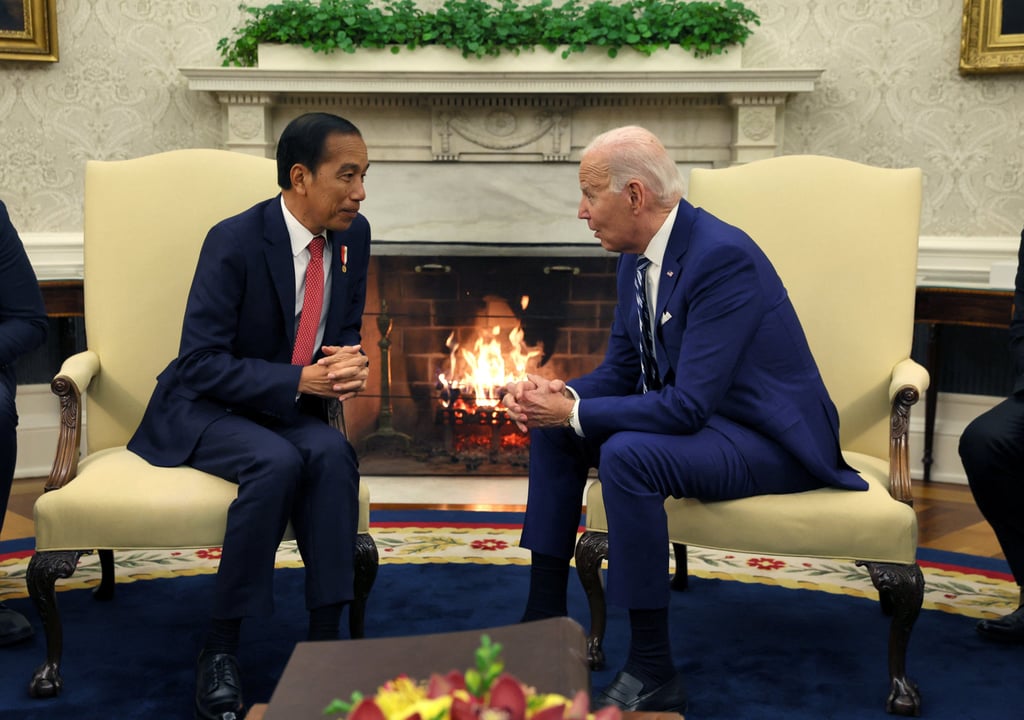
During his visit to the White House in November, President Joko Widodo and Biden said they would “commit to develop a critical minerals action plan” to increase “high-standard investment in the critical minerals sectors in both countries”.
During his visit to Indonesia on July 15, US Under Secretary of State for Economic Growth, Energy, and the Environment Jose Fernandez told reporters that the discussion with the Indonesian government was “progressing positively”.
“We are very satisfied with the way that our discussions are ongoing. We will continue to expand on those discussions going forward,” he said, as cited by Reuters.
Driving diversification
According to Kim, Jakarta “is definitely trying to diversify” its nickel processing industry, as the country, which is the world’s biggest producer of the mineral, seeks to strengthen its supply chain resilience amid shifting geopolitical tensions, including the US-China trade war.
Currently, Chinese companies such as steel giant Tsingshan Holding Group, Zhejiang Huayou Cobalt, and Ningbo Lygend, have built more than 90 per cent of nickel smelters in Indonesia, according to the country’s Association of Indonesian Nickel Miners.
“This process will be slow. Chinese companies are masters of the key technology, high-pressure acid leaching (HPAL), needed to turn Indonesia’s class two ores into battery-quality nickel intermediates,” Kim said.
“As a result, the Indonesian government will not explicitly adopt policies to reduce Chinese dominance in the short term,” he said.
Instead, Kim said it was more likely the government would come up with “smarter policy alternatives” to expand domestic ownership, value addition and enhance ESG [environmental, social, and governance] investment guidelines.
Indonesia’s nickel policy has yielded mixed results, with some firms increasing their investment commitments while others pull back for various reasons.
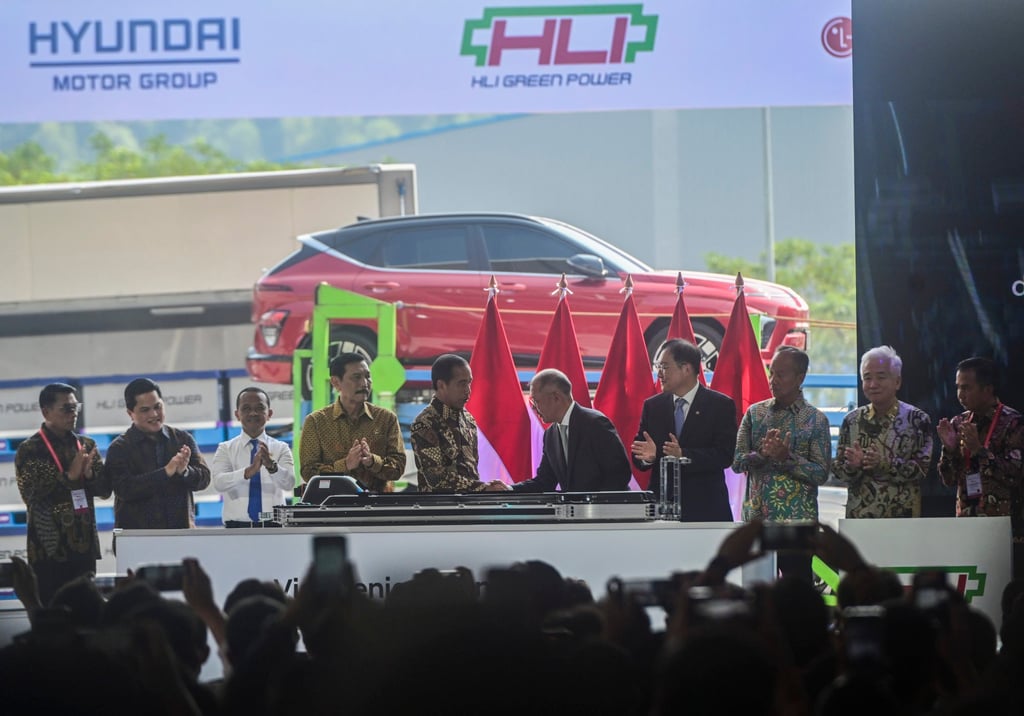
South Korean carmaker giant Hyundai Motor Group would fall under the first camp, as it launched Indonesia’s first EV battery plant on July 3 in a joint venture with battery maker LG Energy Solution (LGES). The plant, located in the West Java town of Karawang, is run by a joint venture company, PT HLI Green Power, which said that it would invest an additional US$2 billion to increase production to 20 gigawatt hours worth of battery cells annually, doubling its current capacity of 10 GWh.
On the other hand, German multinational BASF and French mining group Eramet in June cancelled their joint plan to build a HPAL processor in North Maluku, with BASF citing “low global nickel prices” as the main reason behind the decision.
The two companies’ planned HPAL facility would have been “the only European investment in nickel processing in Indonesia since the 1990s,” Kevin O’Rourke, an Indonesia-focused policy analyst, wrote in his newsletter Reformasi on June 28. HPAL processors built by Chinese investors are proliferating in nickel hubs in Eastern Sulawesi and North Maluku, he noted.
“Low prices are the ostensible reason for the withdrawal of BASF-Eramet, but in fact, this is unconvincing. It seems more likely that the European companies perceived difficulties in maintaining acceptable standards, especially for environmental impacts, using HPAL in Indonesia,” O’Rourke wrote.
“Furthermore, the arena features formidable competition from other producers with fewer obligations or scruples regarding the impacts of their operations and waste.”
Kim argued that Jakarta may try to revive the plan as “the withdrawal [of BASF and Eramet] is a serious concern for the Indonesian government considering it was a major non-Chinese project.”
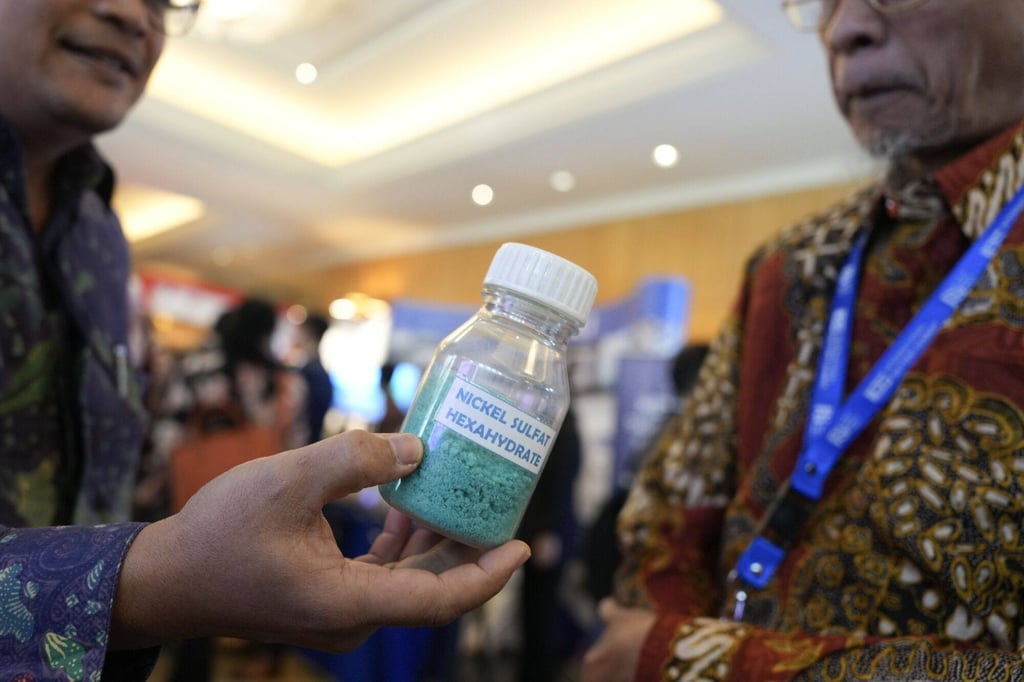
Jakarta is also attempting to sell its domestically produced EV batteries to markets beyond the West. Coordinating Minister for Maritime Affairs and Investment Luhut Pandjaitan said that he is eyeing African countries, especially Kenya and South Africa, as target markets.
“The population in Africa will double by 2045. This will be a huge market. They see Indonesia as a country that can help them regarding these electric vehicles,” Luhut told journalists during the International Battery Summit in Jakarta on Monday.
Indonesia itself remains a small player in the global EV supply chain as the nation is only expected to generate 10 GWh of battery energy this year, less than 0.4 per cent of the world’s total projected battery energy output of 2,800 GWh, according to energy think tank Energy Shift Institute.


